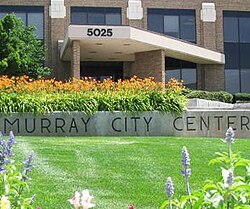When going through a divorce, the division of assets can be a complex and emotionally charged process. If you are a business owner, protecting your share of the business becomes a crucial aspect. In this article, we will explore the intersection of divorce and business ownership, providing guidance and reassurance for those facing this situation. We will address common legal concerns, offer advice on protecting your business interests, and highlight the importance of seeking proper assistance in navigating through this challenging time. By the end, you will have a clearer understanding of how to safeguard your share and make informed decisions to protect your future.
Understanding the Impact of Divorce on Business Ownership
Divorce can have a significant impact on many aspects of your life, including your business. Whether you are a sole proprietor or a co-owner of a business, it’s crucial to understand the implications of divorce on your business ownership. This article aims to provide you with a comprehensive understanding of the various factors involved in handling business ownership during a divorce.
Determining the Value of the Business
One of the critical steps in dividing assets during a divorce is determining the value of your business. Business valuation is a complex process that involves assessing various factors such as assets, liabilities, income, market conditions, and future prospects. Hiring a professional business valuation expert can help ensure an accurate assessment of your business’s value, providing a solid foundation for negotiations and settlement discussions.
Division of Assets: Marital vs. Non-marital Property
During a divorce, assets are typically divided into two categories: marital property and non-marital property. Marital property refers to assets acquired during the marriage, while non-marital property includes assets obtained before the marriage or through inheritance or gift. If you started or acquired your business during the marriage, it may be considered marital property subject to division. Understanding the distinction between marital and non-marital property is crucial to protect your business ownership and ensure a fair distribution of assets.
Protecting Your Business from Alimony Claims
Alimony, also known as spousal support, is a financial arrangement that one spouse may be required to pay to the other during and after a divorce. If you are a business owner, it’s essential to take steps to protect your business from potential alimony claims. One strategy is to establish a clear separation between your personal and business finances. By maintaining separate bank accounts and meticulously documenting the business’s expenses, you can demonstrate that the business’s income is not available for alimony calculations.
Understanding Business Valuations in Divorce Proceedings
Business valuations play a crucial role in divorce proceedings involving business ownership. It’s important to understand the different methodologies used to assess the value of a business. Some common approaches include the income approach, market approach, and asset-based approach. Working with a qualified business valuation expert who can explain the valuation process and guide you through the complexities can help ensure a fair and accurate assessment of your business’s worth.
Steps to Protect Your Business During Divorce
Navigating the complexities of a divorce involving business ownership requires careful planning and proactive measures. Here are some essential steps to protect your business during divorce:
Keeping Personal and Business Finances Separate
One of the most critical steps you can take to protect your business is to keep your personal and business finances completely separate. This includes maintaining separate bank accounts, using separate credit cards, and avoiding mixing personal and business expenses. By doing so, you can clearly demonstrate that the business is a distinct entity and maintain its integrity during divorce proceedings.
Creating a Prenuptial or Postnuptial Agreement
To safeguard your business in the event of a divorce, consider creating a prenuptial or postnuptial agreement. These legal documents outline how your business and other assets would be divided in the event of a divorce. By defining the terms before marriage or during the marriage, you can provide clarity and protection for your business.
Maintaining Accurate and Organized Business Records
Keeping accurate and organized business records is essential not just for your business’s day-to-day operations but also for divorces involving business ownership. Thorough and detailed records can help substantiate the value of your business, support your claims during negotiations, and provide evidence for equitable distribution of assets. Make sure to keep track of financial statements, tax returns, contracts, invoices, and any other relevant documents.
Evaluating the Need for a Buy-Sell Agreement
If you co-own your business with others, it’s crucial to have a buy-sell agreement in place. A buy-sell agreement defines what will happen to a co-owner’s share in the event of divorce, death, or other triggering events. By proactively addressing such situations, you can avoid potential complications and disputes that may arise during a divorce.
The Role of Experts in Divorce and Business Valuations
During a divorce involving business ownership, it’s often necessary to work with experts who specialize in business valuations and financial analysis. These professionals can offer valuable insights and guidance. Here are some experts commonly involved in divorce proceedings:
Hiring a Business Valuation Expert
A business valuation expert is a crucial asset during a divorce, as they can provide an objective and unbiased assessment of your business’s value. These experts have the knowledge, experience, and credentials to conduct in-depth analyses and provide accurate valuations based on industry standards and best practices.
Working with Forensic Accountants
Forensic accountants play a vital role in divorce cases where financial complexities are involved. They specialize in investigating financial records, uncovering hidden assets, and analyzing cash flows. If you suspect your spouse may be hiding assets or undervaluing the business, a forensic accountant can assist you in uncovering the truth.
Obtaining an Independent Appraisal
In some cases, it may be beneficial to obtain an independent appraisal of your business’s value. This can provide an additional layer of credibility and ensure that all parties involved have confidence in the valuation. An independent appraisal may be especially useful if there is a dispute or if the business’s value is a contentious issue during the divorce proceedings.
Considerations for Business Owners in Divorce Settlements
When negotiating a divorce settlement involving business ownership, there are several key considerations to keep in mind:
Negotiating a Fair Settlement
Negotiating a fair settlement requires a careful balance between protecting your business and reaching a mutually acceptable agreement. It’s essential to assess your business’s current and future value, consider tax implications, and explore various scenarios before entering into negotiations. Working closely with your attorney and other professionals can help ensure that your interests are represented effectively.
Exploring Alternative Dispute Resolution Methods
Divorce cases involving business ownership can be complex and emotionally draining. In some situations, exploring alternative dispute resolution methods, such as mediation or collaborative divorce, can offer a more efficient and amicable resolution. These methods focus on finding mutually agreeable solutions rather than resorting to adversarial litigation.
Protecting Intellectual Property Rights
If your business involves intellectual property rights, such as patents, trademarks, or copyrights, it’s essential to protect those rights during the divorce proceedings. Intellectual property can be a valuable asset, and its ownership and value need to be carefully considered and addressed in the settlement.
Tax Implications of Divorce on Business Ownership
Divorce can have significant tax implications for both you and your business. It’s essential to understand these consequences to make informed decisions and plan accordingly:
Understanding Tax Consequences of Property Division
When dividing assets during a divorce, it’s crucial to consider the tax implications. Transfers of property between spouses incident to divorce are generally tax-free. However, when it comes to businesses, certain transfers may trigger tax liabilities, such as capital gains taxes. Consulting with a tax professional can help ensure that you fully understand the tax consequences of property division.
Utilizing Tax Planning Strategies
Tax planning can play a crucial role in minimizing the impact of divorce on your business. Strategies such as structuring settlement payments as tax-deductible alimony or utilizing installment sales provisions can help mitigate tax liabilities. It’s crucial to work closely with a tax professional who has experience in divorce-related tax planning.
Considering the Impact of Alimony on Business Expenses
If you are required to pay alimony as part of your divorce settlement, it’s important to consider the impact on your business expenses. Alimony payments are generally tax-deductible for the paying spouse and taxable income for the receiving spouse. Understanding how alimony payments may affect your business’s profitability and cash flow is crucial for long-term financial planning.
Safeguarding Your Business Post-Divorce
Once the divorce is finalized, it’s important to take steps to safeguard your business’s future success:
Updating Legal Documents and Ownership Structure
After a divorce, it’s crucial to update your legal documents to reflect changes in your marital status and ownership structure. This includes revisiting your operating agreement, shareholder agreements, or partnership agreements and making any necessary amendments. It’s also important to update any licenses, permits, or registrations to reflect the new ownership structure.
Developing a Succession Plan
A divorce may necessitate the need for a succession plan, especially if you are the sole owner of the business. It’s important to identify and groom potential successors or make arrangements for the sale or transfer of your business in the event of your absence or incapacity. Developing a comprehensive succession plan helps protect the business from uncertainties and ensures its continuity.
Ensuring Non-Compete and Non-Disclosure Agreements
To protect your business’s competitive advantage and intellectual property, it’s critical to ensure that non-compete and non-disclosure agreements are in place. These agreements restrict employees, partners, or co-owners from divulging sensitive information or competing in the same industry for a defined period. By safeguarding your business’s proprietary information, you can maintain its value and prevent potential damage or loss.
Seeking Professional Legal Guidance in Divorce and Business Matters
Divorce cases involving business ownership can be legally complex and emotionally challenging. Seeking professional legal guidance is crucial to protect your interests and navigate the intricate legal landscape. Here are some reasons why consulting with a divorce attorney and business law specialists is essential:
Importance of Consulting a Divorce Attorney
A divorce attorney can provide invaluable guidance throughout the divorce process. They can help you understand your rights and obligations, advocate for your interests, negotiate a fair settlement, and ensure your business is adequately protected. An experienced divorce attorney will have the knowledge and expertise to address the unique challenges posed by business ownership in divorce.
Working with Business Law Specialists
In addition to a divorce attorney, working with business law specialists can provide specialized advice and support specific to your business. Business law specialists can assist with drafting agreements, handling business transactions, and providing guidance on legal and regulatory compliance. By working closely with professionals who understand the intricacies of both divorce and business law, you can navigate the complexities with confidence.
FAQs about Divorce and Business Ownership
Here are some frequently asked questions about divorce and business ownership, along with brief answers to provide additional clarification:
What factors determine the division of a business in a divorce?
The division of a business in a divorce is determined by various factors, including whether the business is considered marital or non-marital property, its value, the contributions of each spouse to the business, and the specific laws of the jurisdiction in which the divorce is filed.
Can a prenuptial agreement protect my business in case of divorce?
Yes, a properly drafted prenuptial agreement can protect your business in the event of divorce. A prenuptial agreement allows you to outline how your business and other assets would be divided, providing clarity and protection for your business ownership.
How can I avoid disruption to my business during a divorce settlement?
To minimize disruptions to your business during a divorce settlement, it’s important to maintain clear separation between personal and business finances, keep accurate and organized business records, consider alternative dispute resolution methods, and work closely with professionals specializing in divorce and business ownership matters. Seeking legal guidance early on can help you navigate the process smoothly while minimizing business disruptions.
In conclusion, divorce can have significant implications for business owners. By understanding the value of your business, division of assets, protecting your business from alimony claims, and comprehending the role of experts and tax implications, you can safeguard your business during and after a divorce. Taking proactive steps, such as creating legal agreements, maintaining accurate records, and seeking professional guidance, can help protect your business’s future and ensure a fair and equitable settlement. Remember, consulting with a divorce attorney and business law specialists is crucial to effectively navigate the intricacies of divorce and business ownership. Take the necessary steps to protect your share and seek professional assistance to minimize potential disruptions and safeguard the success of your business.











